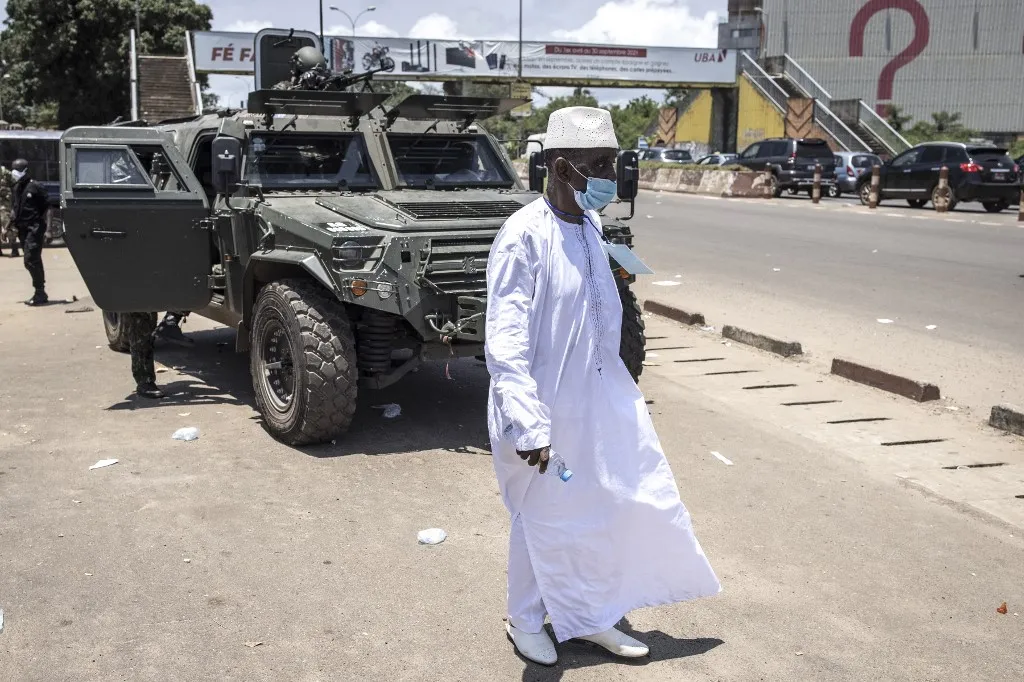The regional bloc froze financial assets and imposed travel bans on Guinea’s coup leaders and their relatives, insisting on the release of President Alpha Conde and a return to constitutional rule in the next six months.
The move was announced by Jean-Claude Kassi Brou, the president of the bloc’s commission following an emergency summit of regional leaders in Accra.
The leader of Guinea’s coup shrugged off the impact of the sanctions on Saturday, stating: “As soldiers, their (military leaders) work is in Guinea and there is nothing to freeze in their accounts,” Amara Camara, spokesperson for the National Committee established by the military said.
ECOWAS suspended Guinea’s membership on September 8, but the resort to sanctions is its toughest response yet to a run of military takeovers, analysts say.
Judd Devermont the director of South Africa-based think-tank CSIS Africa called it “A much more robust response compared to its reaction to Mali’s two coups.”
ECOWAS slapped sanctions on West African neighbour Mali in August 2020 after Malian soldiers detained President Ibrahim Boubacar Keita after a mutiny that followed weeks of protests against his government.
The bloc also demanded that Mali’s transitional government stick to an agreement to organise elections for February 2022, and present an roadmap for the vote by next month, or face the same fate as Guinea, a post-summit statement said.
Central and West Africa’s third coup this year has sparked consternation from African leaders who slammed the junta for upending the constitutional order. The African Union has followed ECOWAS in suspending Guinea.
Ugandan President Yoweri Museveni told France24 that the coup was a “step backwards” and said the leaders of the putsch should face sanctions and “get out”.
Economy resilient
The impact of the coup on Guinea’s mineral-dependent economy remains uncertain. The economy had emerged virtually unscathed from the pandemic owing to resilient production of bauxite – a key source of aluminium – over the last year and a half.
The previous government had struck a deal for the long-awaited exploitation of the Simandou mine with the SMB-Winning consortium, which expected to bring the site into production by 2025. It is unknown whether that timetable will be affected, but Guinea’s coup leaders have urged mining companies to keep operating.
In the immediate aftermath of the takeover, land and air borders were closed, raising fears of disruptions to the global supply of bauxite, of which Guinea accounts for 20%.
Over the last ten days, Conakry has gradually reopened borders with neighbouring countries, starting with Guinea – Bissau, Sierra Leone, Liberia and Senegal.
The new government also kicked off week-long consultations with political, religious, and business leaders on Tuesday that it says will pave the way to forming a transitional government.
Want to continue reading? Subscribe today.
You've read all your free articles for this month! Subscribe now to enjoy full access to our content.
Digital Monthly
£8.00 / month
Receive full unlimited access to our articles, opinions, podcasts and more.
Digital Yearly
£70.00 / year
Our best value offer - save £26 and gain access to all of our digital content for an entire year!
 Sign in with Google
Sign in with Google 



